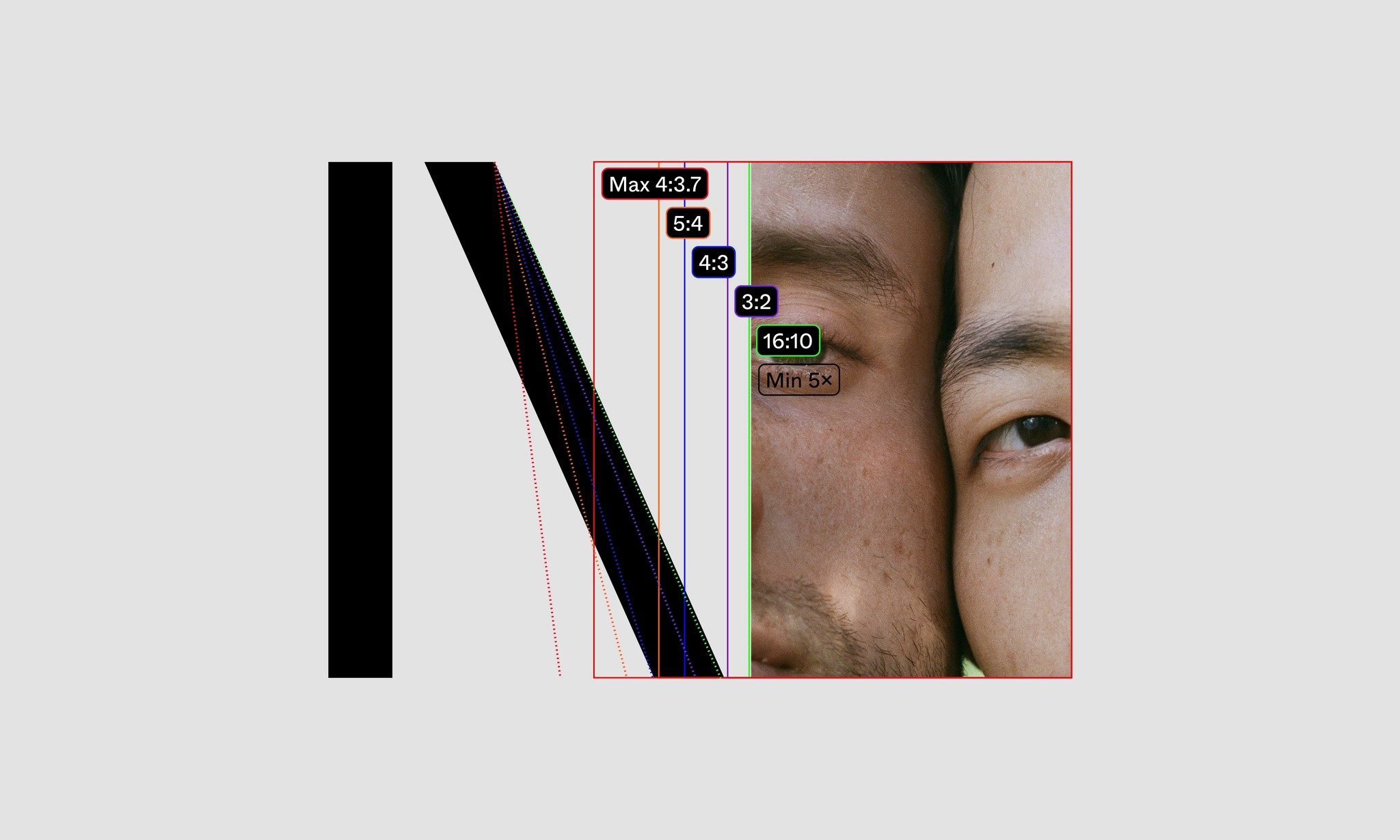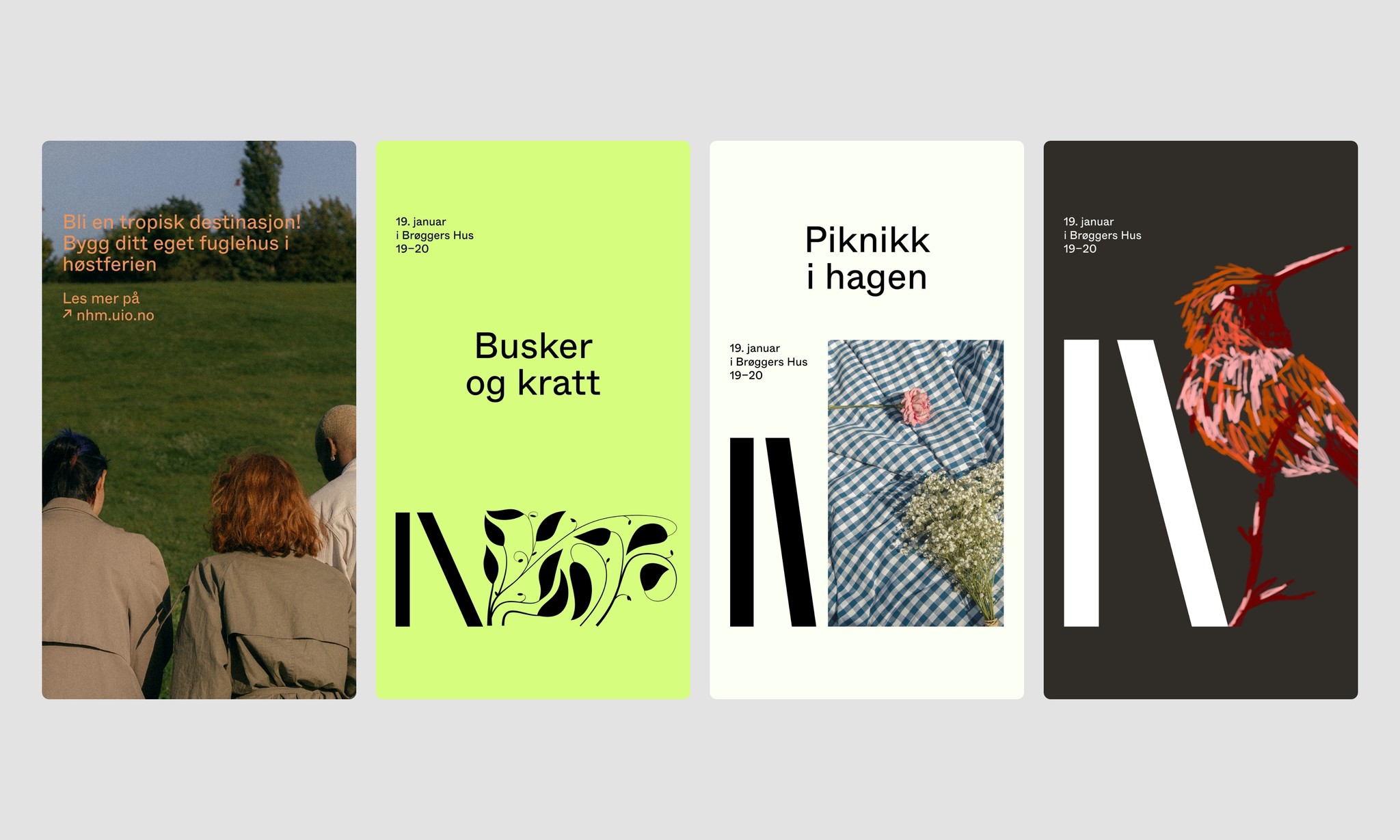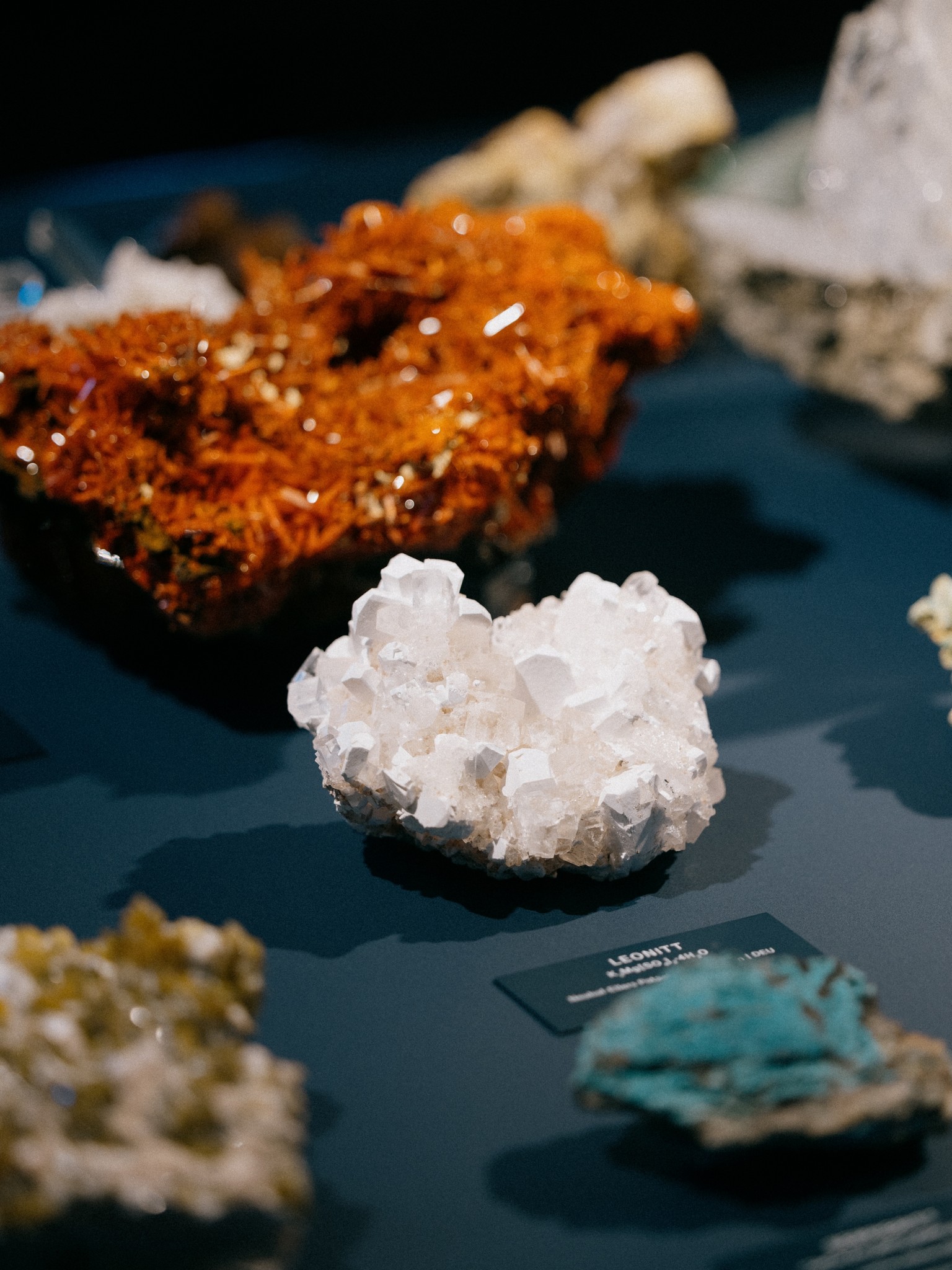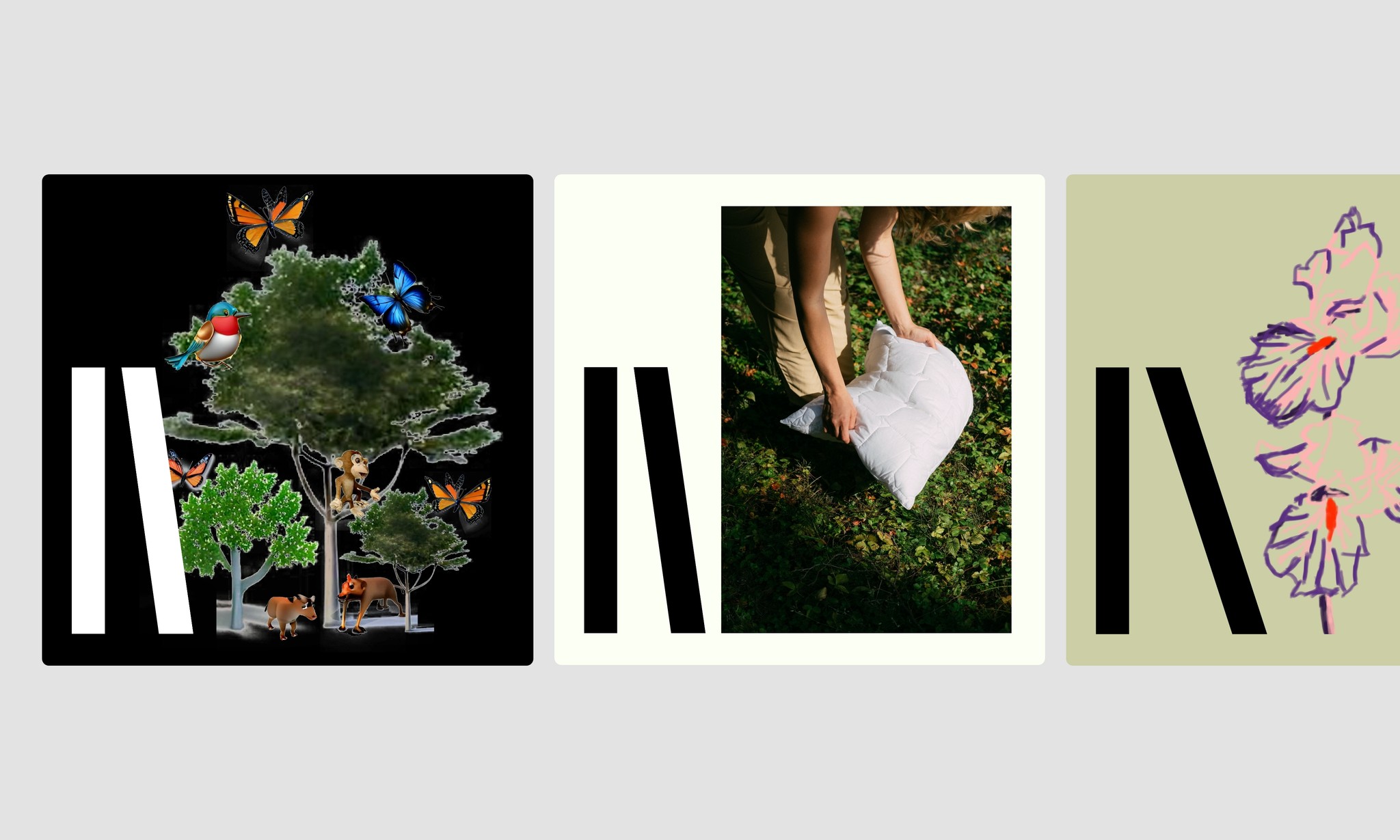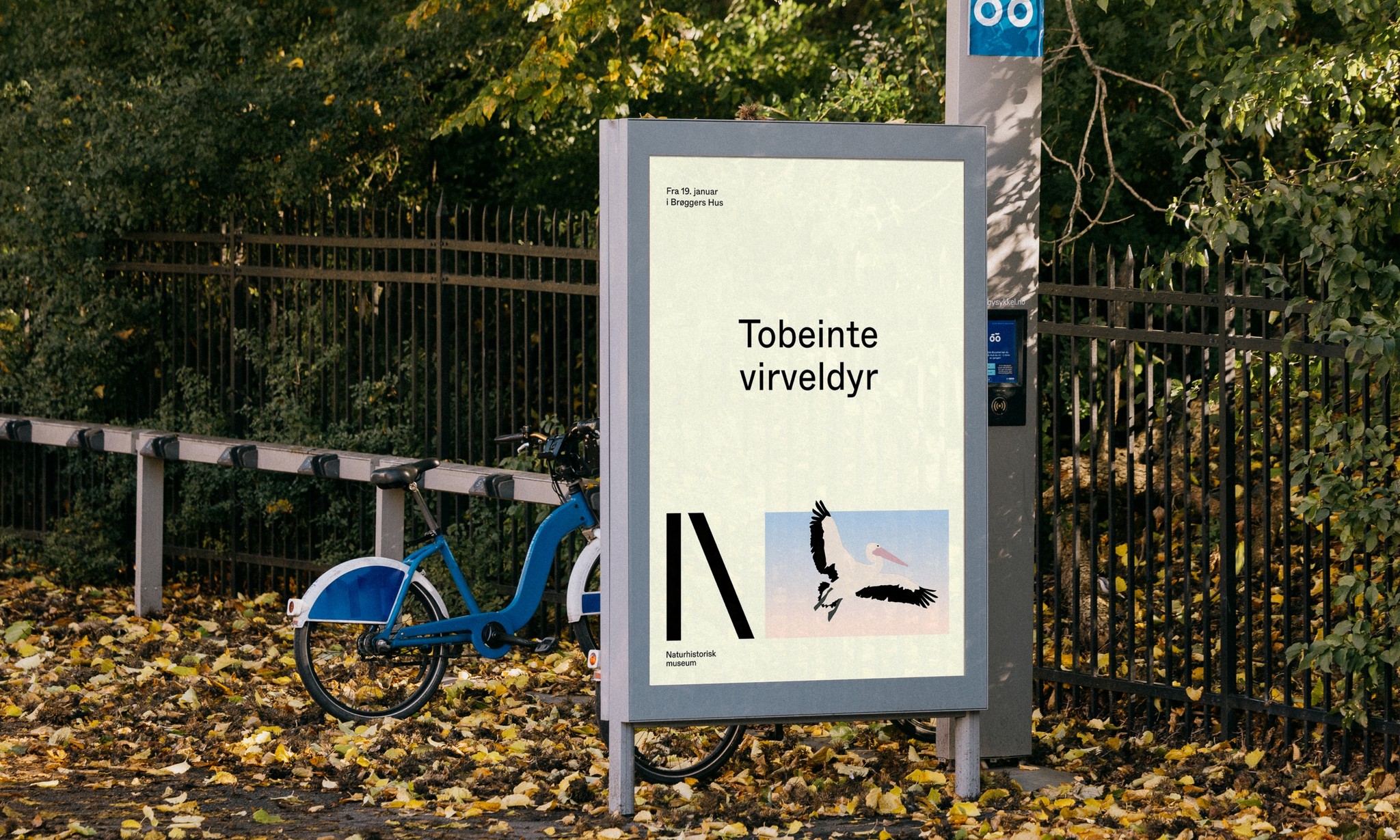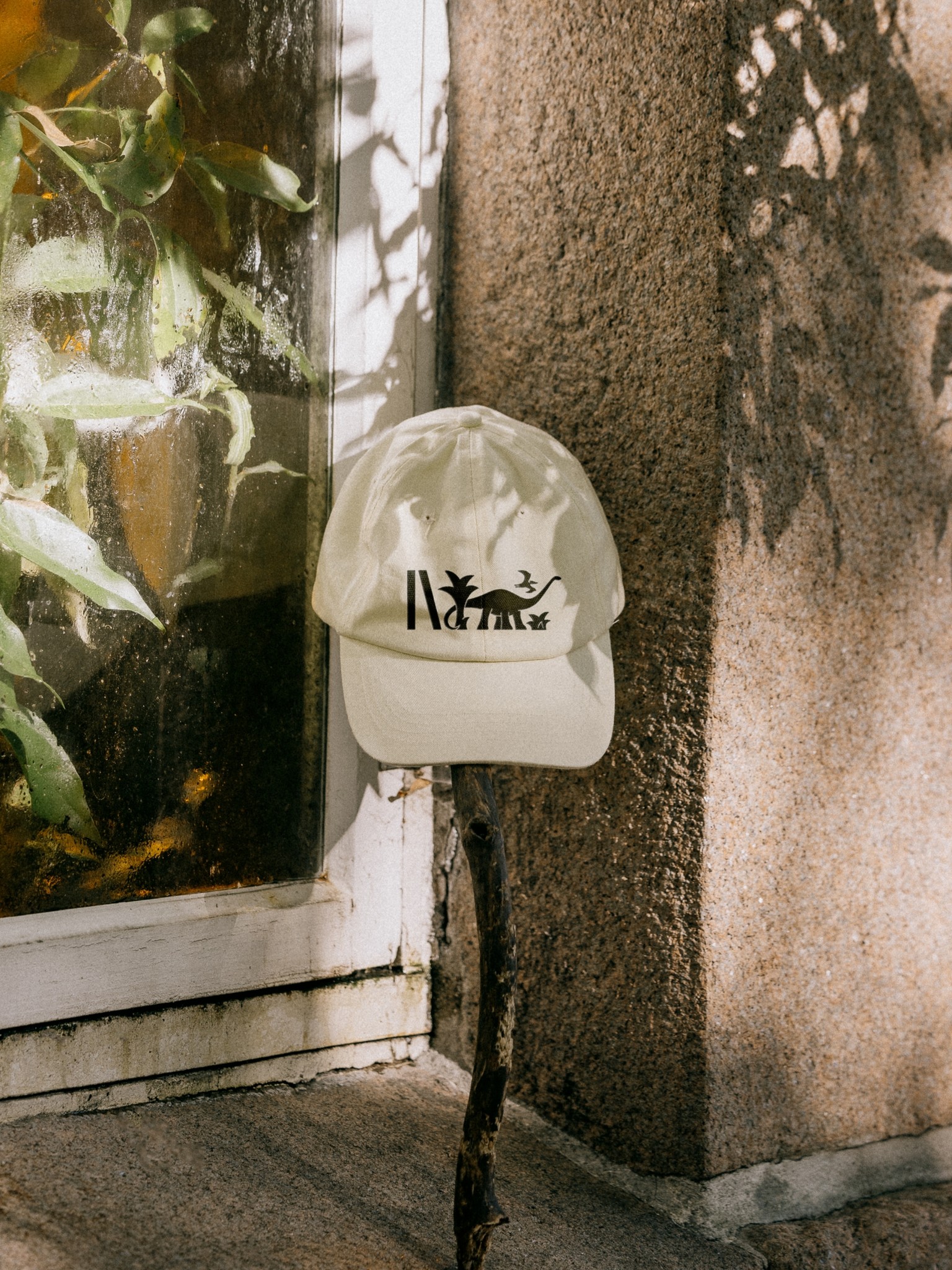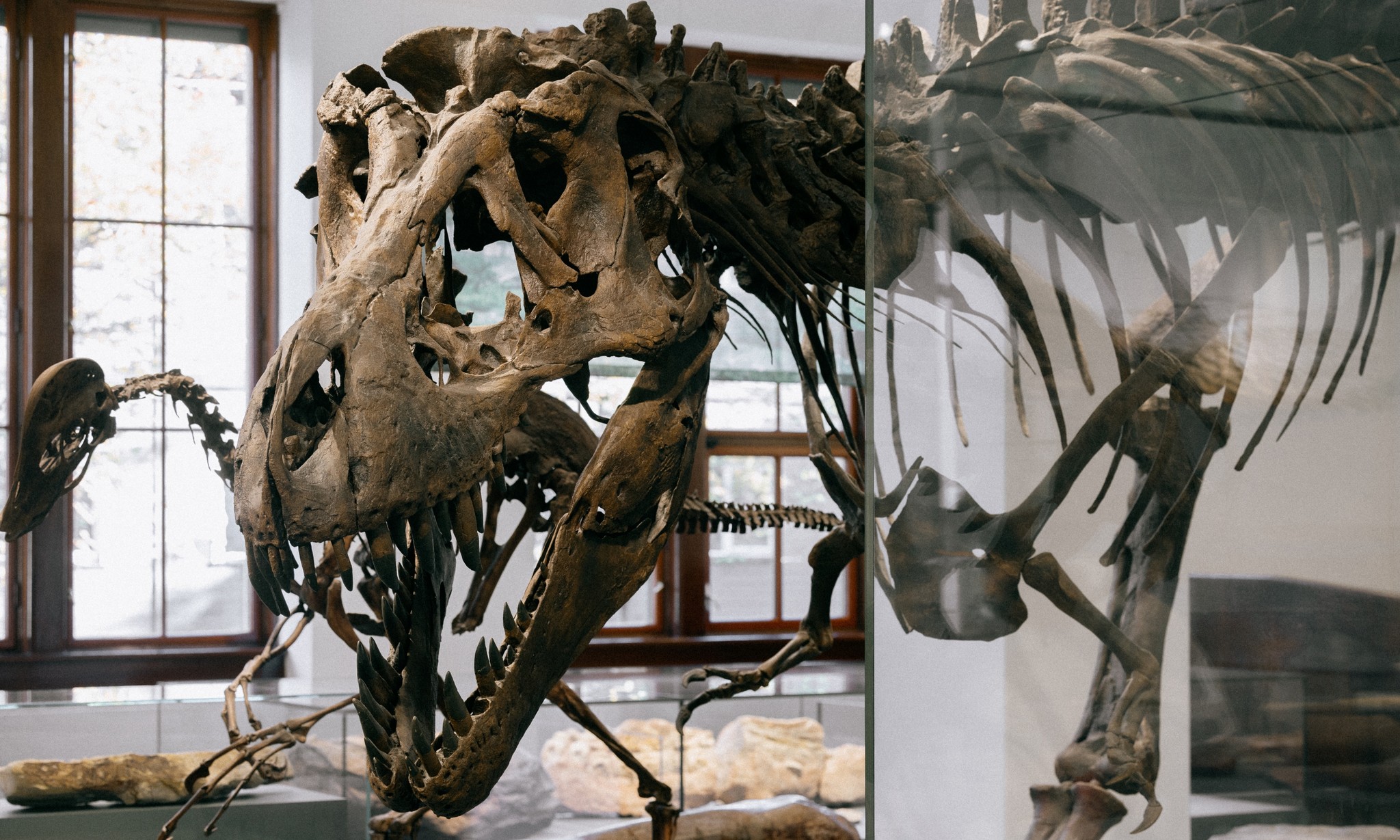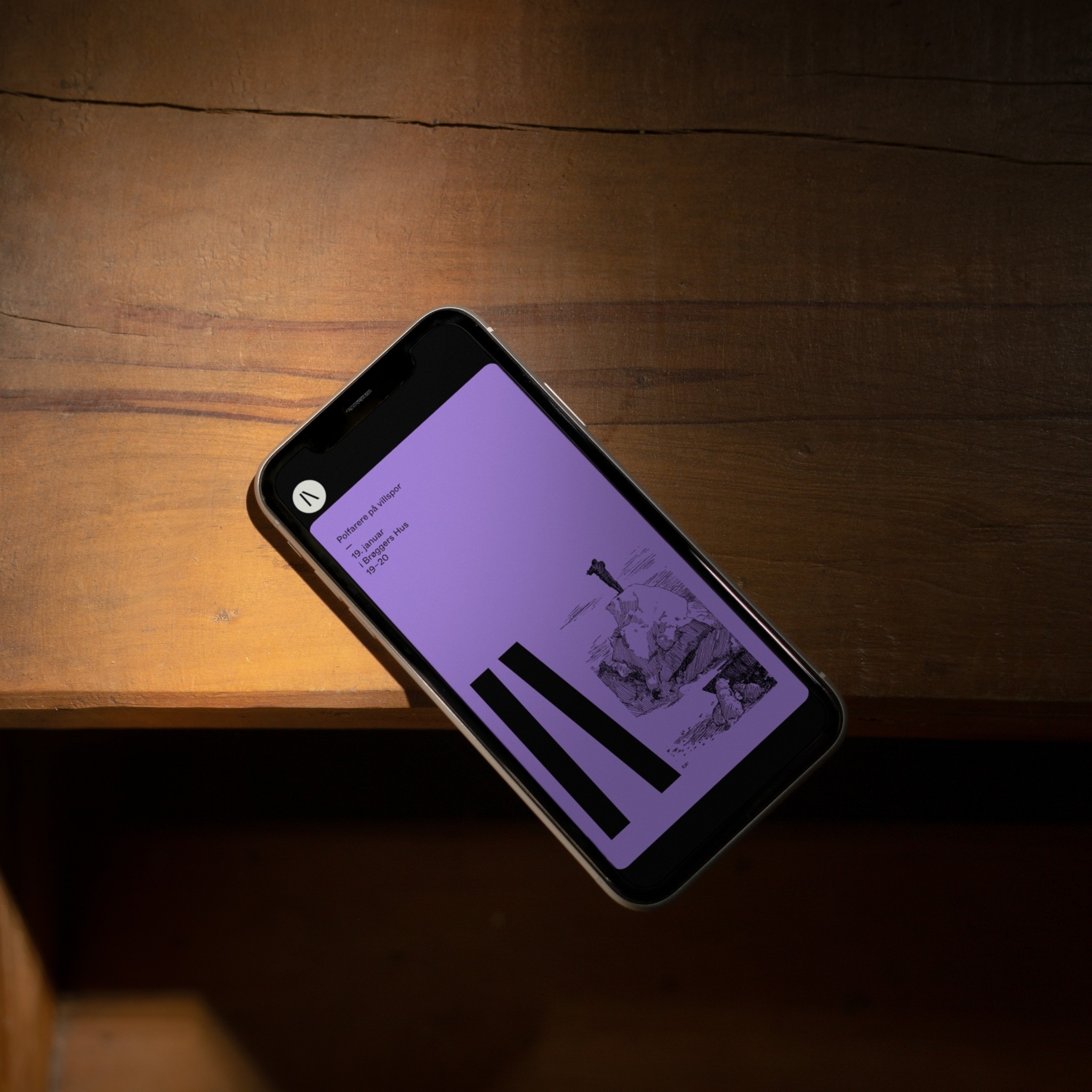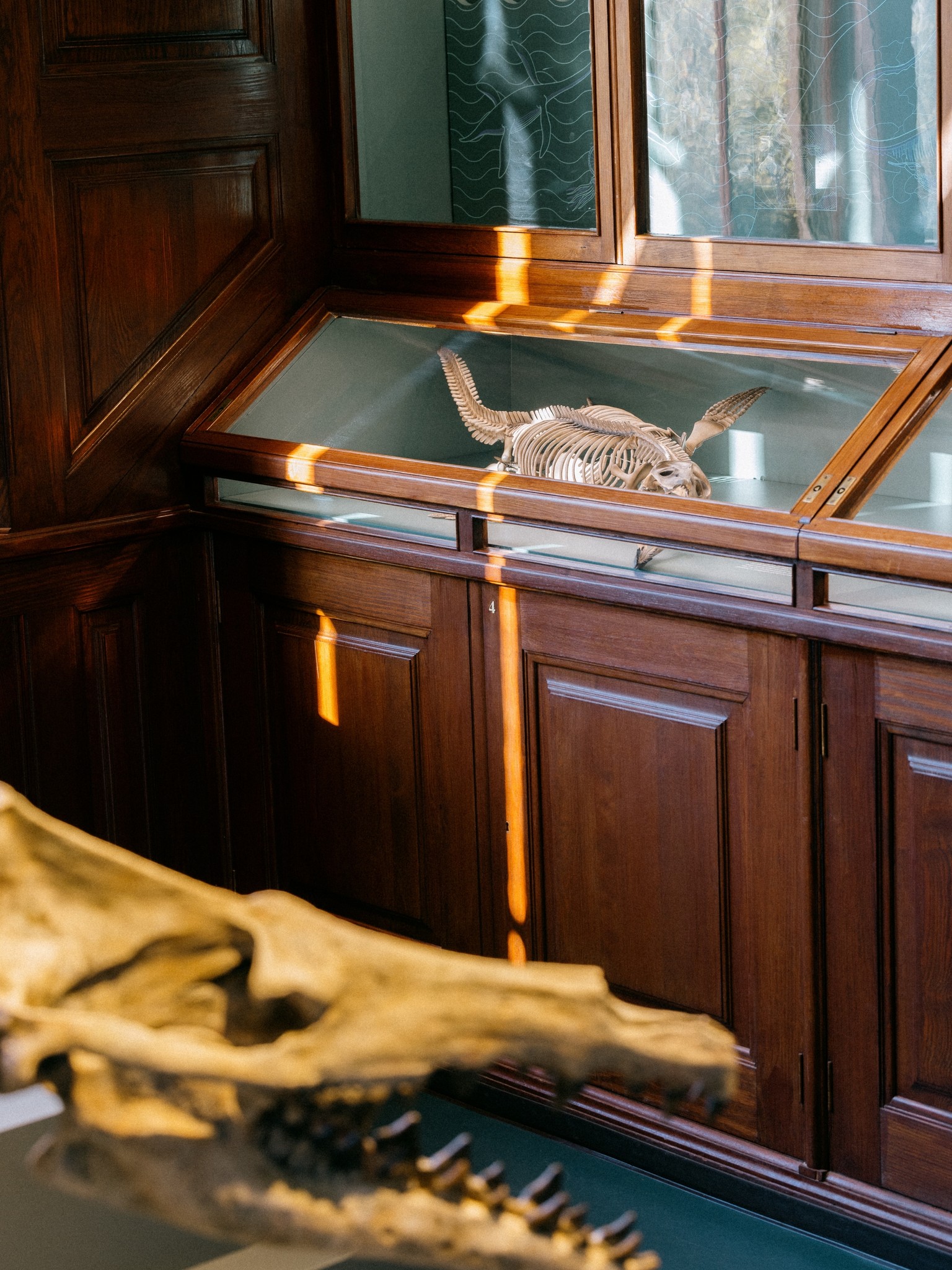The Natural History Museum
Adapt and Adjust
The Natural History Museum is a part of the University of Oslo and consists of the Botanical Garden and the museum buildings in the district of Tøyen. For more than 200 years, the museum has managed and disseminated natural science. The museum now houses Norway’s largest natural science collection.
The Natural History Museum faced a significant challenge: effectively communicating its diverse collection—which spans dinosaurs, perennials, mounted animals, and climate change topics—to a broad audience. Striking a balance between family-friendly activities, catering to botanical enthusiasts, and presenting complex scientific content has been no easy task. The goal of the project was to strengthen the museum’s identity as an independent entity while simultaneously integrating it seamlessly into the University of Oslo’s (UiO) network of museums and institutions.
Adaptation
Given the museum’s extensive collection, it was crucial to develop a visual system that could easily adapt to various exhibitions, events, and content. Drawing inspiration from the way biological entities adapt to their environments, the logo itself was designed as a flexible element that aligns with the message it represents.
Logo as Image, Image as Logo
Previously, the museum’s communication focused heavily on its individual departments. The new identity, however, establishes a more cohesive and recognizable brand while also allowing for greater differentiation within the institution. The robust N-shaped logo serves as a versatile framework that can be complemented by diverse content—whether illustrated, painted, animated, or photographed. This flexibility empowers the museum to tailor its visual identity to suit the specific needs of its exhibitions and events, enhancing both its clarity and impact.
Documentation photo
Jan Khür (Abrakadabra)

